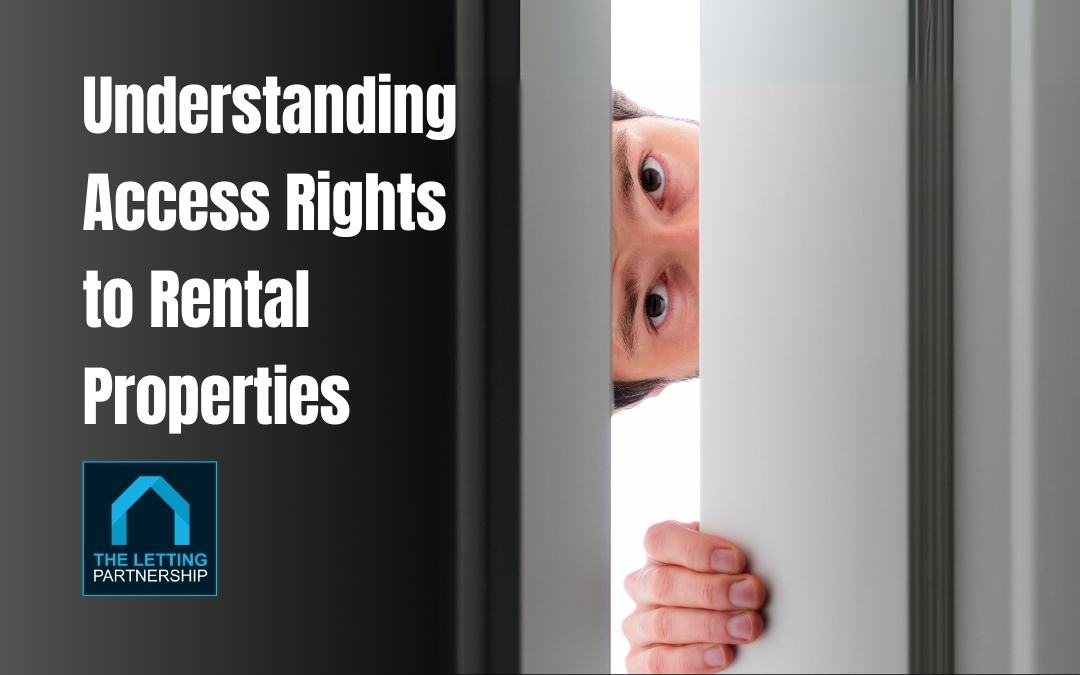The subject of access rights to rental properties can often be a contentious one, and the cause of friction between tenants, landlords and letting agents. It’s therefore important to fully understand who has what rights so that you can not only adhere to the law but so that you can also guide your landlords.
In this article we aim to clear up any confusion.
Landlord Misconceptions: “It’s my property – surely I can enter it at any time?“
A common belief among landlords is that owning the property gives them unrestricted access rights.
While it’s true that the property belongs to them, signing a tenancy agreement means they hand over certain rights to the tenant. This includes the rights of “quiet enjoyment,” which allow tenants to live without unnecessary interference.
Both landlords and agents must respect the tenant’s right to privacy and uninterrupted living. While your landlords maintain ownership and may have passed the day-to-day management on to your agency, their tenants have exclusive possession of the property during their tenancy.
Right of Entry
To be clear; a landlord or their agent may only enter a property for legitimate reasons and with the correct notice.
Legitimate reasons could be: for repairs, gas safety checks, routine inspection of the property, or for viewings, for example.
Issuing the Correct Notice
In England, Wales, and Northern Ireland landlords, and their appointed agents must give at least 24 hours’ written notice and visit at a reasonable time of day.
In Scotland¹, tenants with a private residential tenancy (PRT) must be given at least 48 hours ’ notice, unless the tenancy started prior to December 2017 and is a short assured or assured tenancy, in which case the requirement is 24 hours’ notice.
Written notice includes letters, emails and text messages (as long as the phone number and email have been verified), and should explain the reason for entry and the proposed date and time, allowing the tenant to prepare accordingly. Proof of receipt or proof of delivery should be kept in all cases.
A ‘reasonable’ time generally means not late at night or very early in the morning. Alternatively, if you know the tenant does night shift work, for example, then it may not be deemed reasonable to visit in the mornings.
Exceptions to the Rules
The only exceptions to the above rule about notices are:
- in the case of an emergency such as fire or flood or issues that pose a risk to life or could cause imminent damage to the property or contents. For example, a gas leak reported by a neighbour
- if there is an injunction, or a court order such as a possession order – however this is part of the eviction process. A landlord and/or their agent may attend but the order would have to be enforced by a bailiff or a High Court Enforcement Officer.
In these circumstances you should still make every effort to contact the tenant, and always knock loudly before using your own key to enter the property.
Even with proper notice, tenants have the right to refuse entry
How To Handle Refusal of Entry
With the above exceptions, just because you have given the tenant written notice, this still does not give automatic right of entry.
Even with proper notice, tenants have the right to refuse entry. You and your landlords must not enter the property, even if the tenant is absent, unless you have their permission to do so.
Entering the property without tenant consent, except in an emergency, could be considered harassment or illegal eviction.
Here’s how to handle such situations:
- Communicate & Negotiate: Talk to the tenant – there may be a number of reasons that the tenant is not allowing access. Explain why it is necessary (e.g., urgent repairs, annual gas safety check) and try to negotiate an alternative date and time for the appointment.
- Explain the Consequences: Clearly and calmly remind the tenant of the term(s) in their tenancy agreement that requires them to allow access and inform them about the potential serious consequences of refusing. Emphasise the importance of property maintenance and safety checks for their well-being. For instance, if the legally required annual gas safety check is not conducted, a fault might go unnoticed, posing a risk to the tenant and any other occupiers or visitors. Be careful not to sound ‘threatening’ when explaining the risks!
- Consider Legal Action: If negotiation fails, the next step is seeking legal advice. Consider mediation services to resolve the dispute amicably, however in extreme cases, the landlord may need to obtain a county court injunction to gain access. It’s a last resort but sometimes necessary to protect the property.
Final Tips
Check your contracts – review your tenancy agreements to ensure they clearly outline access terms. Usually, a contract will say that the landlord, or their agent, has the right to enter the property during reasonable hours, provided they give at least 24 hours’ notice (or 48 hours on a Scottish PRT).
A well-drafted tenancy agreement can help prevent disputes and ensure both parties understand their rights and responsibilities, however, despite these terms, tenants can still refuse entry (except in emergencies).
Entering a property without the minimum notice or permission is in violation of the tenant’s right to quiet enjoyment and an offence under the Protection from Eviction Act 1977. Such actions could put the agent or landlord at risk of prosecution on the basis of harassment.
Document Everything – Keep copies of all communication with the tenant, including notices and responses, and document any attempts to access the property and any reasons provided by the tenant for refusal.
Be respectful – when ever you do visit the property always be respectful to the occupants and to the property and contents. Remember that this is the tenant’s home and they have granted you access.
This article is intended as a guide only and does not constitute legal advice. If in doubt seek professional legal advice.
Would you like to receive our monthly Newsletter?
Sign up for our monthly Newsletter for helpful articles and regular industry updates. We promise not to spam you with hundreds of emails and you can unsubscribe at any time.
* * *


